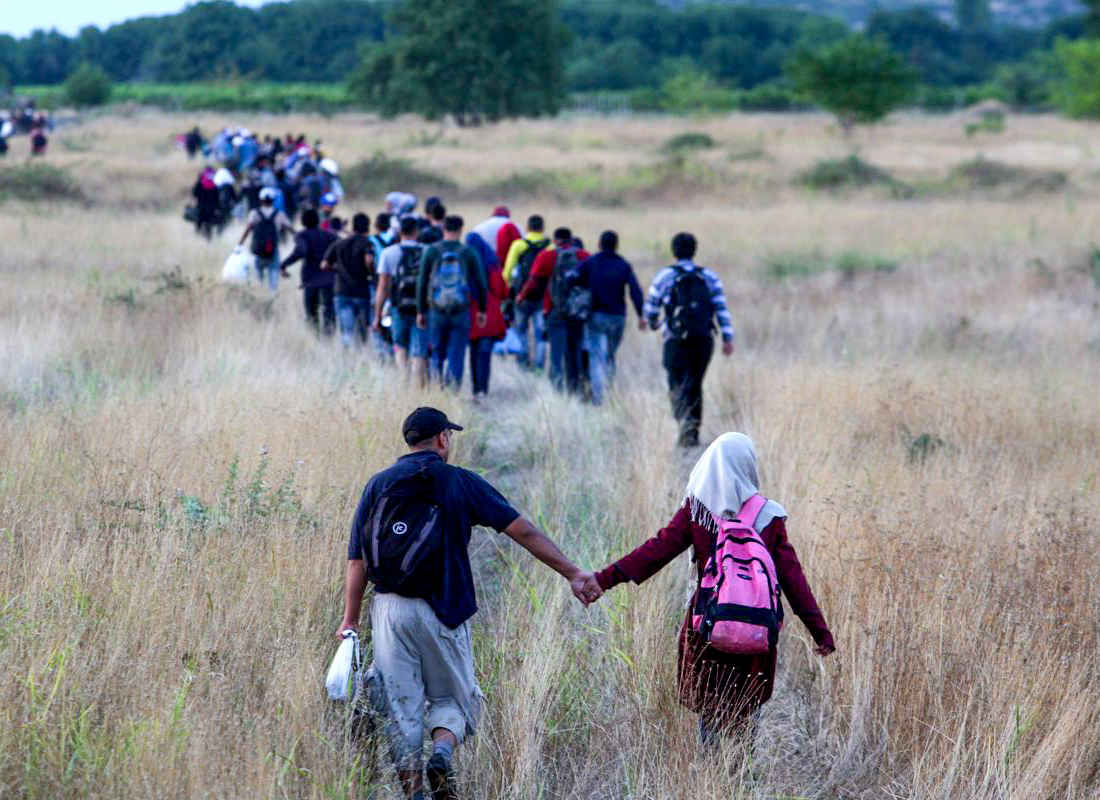
ATHENS, Greece — Dilshad Ali decided, after his first four months in the Skaramagas refugee camp, that his bed should be more comfortable. So on a recent Thursday, the 37-year-old native of Mosul, Iraq, gathered cardboard boxes to support his mattress.
The camp, which is built on a gray concrete dock near Athens, Greece, holds about 3,000 migrants, mostly Syrians, Afghans, and Iraqis, Al Jazeera reported last December.
At Skaramagas and other Greek refugee camps, there is no longer an acute crisis of feeding, clothing and housing the migrants, who have their own beds in air-conditioned trailers. Systems have been developed in the two years since the crisis broke onto the world stage to support the roughly 60,000 refugees that that the International Rescue Committee says live in Greece.
Faced with uncertain prospects for the future and often held for more than a year in what were originally designed to be temporary stops, some refugees have adopted routines that would normally be found in permanent neighborhoods.
Two Afghan men in the Schisto refugee camp, 2.5 miles down the road from Skaramagas, proudly displayed gardens of tomatoes and sunflowers that they maintain in front of their trailers.
Wet clothes hung on fences and railings around Schisto. A baby’s cradle sat next to a trailer. A chocolate brown dog lounged on the steps of the squat, nondescript main office. Flags from Greece, the United Nations and the European Union fluttered above the entrance to the former army base.
Nobody knows when the camp might close, but it is not expected anytime soon. Camp administrator Kostas Asinakopoulou said that there is no timeline for when or how the migrants might leave Schisto and be integrated into Greece or another European country.
Even when migrants gain legal status and can leave the camp, they sometimes attempt to stay, Asinakopoulou said. Refugees struggle to find jobs in Greece, which has suffered through an economic crisis for years.
Greece’s unemployment rate, the highest in the European Union, is 23.2%, the European Commission reported in April.
“The whole point of hiring a foreigner is to save money on wages,” Asinakopoulou said. He said that refugees often must work for a fraction of what a Greek citizen might make, and that he has heard of mistreatment by employers.
Back in Skaramagas, an old man, a native of Damascus, Syria, fished—not to feed himself, but to pass the time. He cut off a chunk of fish to use as bait and dipped his fishing rod into the turquoise waters of the Aegean Sea, which washes along the edge of the camp.
He comes to the edge of the water every day in the early afternoon, he said. Last Thursday, nothing would bite.
“No fish today,” he said with a shrug, handing the rod to his Sara, a young Syrian girl who lives in the camp. He would come back the next day, when he needed an activity to pass the hours, days, and months of waiting, and try again.
Leave a Reply